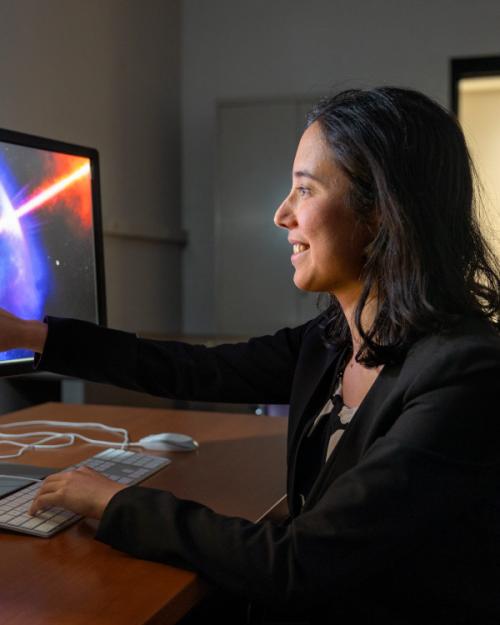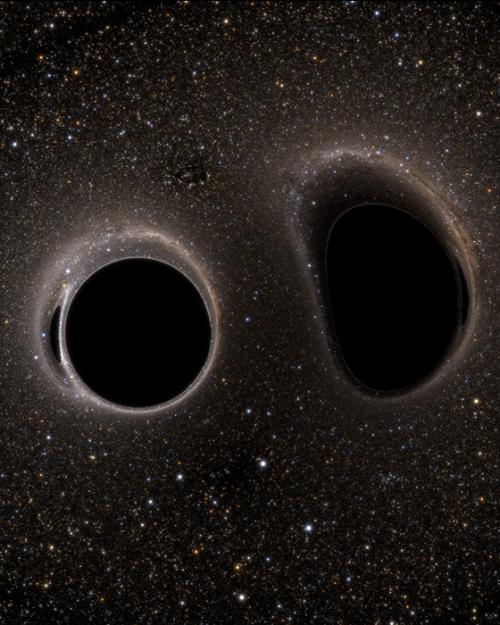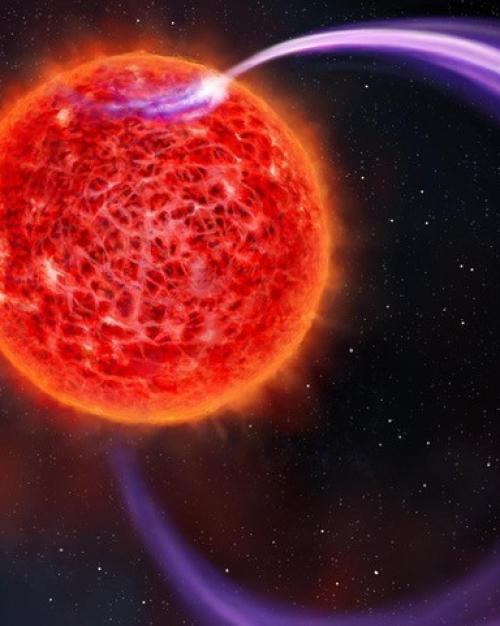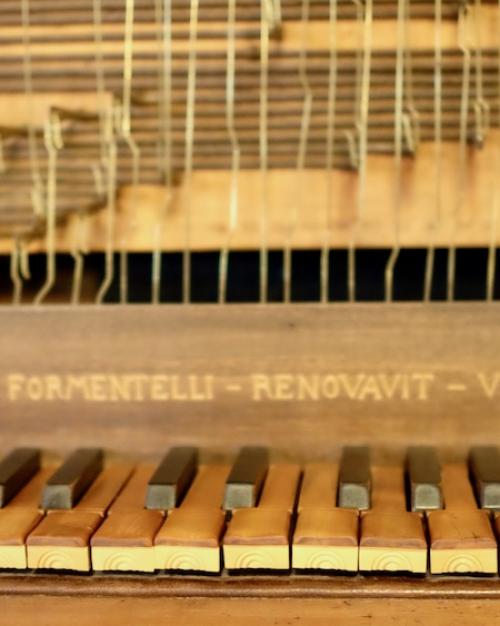Anna Ho
Assistant Professor, Astronomy
Academic focus:
I study the most energetic explosions in the universe. My collaborators and I devise strategies for discovering these events using fully roboticized observatories; conduct detailed observations of each event across the electromagnetic spectrum; and develop new approaches to modeling the radiation that we observe in order to learn about the basic underlying physics. We’re interested in questions such as: how are particles accelerated by the shockwaves produced in supernovae? What is the origin of rare and extreme phenomena such as gamma-ray bursts? What parameters and processes determine whether a star will collapse and form a black hole, or explode completely leaving behind nothing at all? What “death omens” signal the imminent demise of a star?
Current research project:
Every night, a robotic observatory called the Zwicky Transient Facility images a patch (about 10%) of the sky multiple times. We search the images for sources that fade rapidly in brightness, which is what you expect to see from the ultra-fast (over 0.99995 times the speed of light!) outflows that can be launched when a massive star collapses, explodes, and forms a black hole. By finding these relativistic jets (which are the brightest known photon sources in the universe!) we’re measuring the rate at which they occur, which in turn will teach us about the origin of the elements (these systems are thought to be important sites of certain heavy elements in particular), and the basic mechanism by which stars explode.
Previous positions:
- Miller Research Fellow, Astronomy Department, University of California Berkeley, 2020-2022
- Fulbright Scholar, Max Planck Institute for Astronomy, Heidelberg, Germany, 2014-2015
Academic background:
- Ph.D., Astrophysics, California Institute of Technology, 2020
- M.S., Astrophysics, California Institute of Technology, 2017
- B.S., Physics, Massachusetts Institute of Technology, 2014
Last book read:
“Master of the Senate” by Robert Caro
In your own time/when not working:
I like organizing book clubs as a way to keep in touch with friends and digest books. Also, from growing up in the UK, I’m an enthusiastic follower of Premier League football/soccer.
Courses you’re most looking forward to teaching:
Radiative Processes, as well as new courses focused on high-energy astrophysics, compact objects, and techniques in observational astronomy. I’m also looking forward to teaching introductory astronomy courses for undergraduate students.
What most excites you about Cornell:
How much I’m going to learn! I’m excited about the interdisciplinary, interactive, and collaborative environment; about working together with my astronomy colleagues; and about the opportunity to collaborate with amazing students and postdocs. I’m also looking forward to the fall colors, and to taking full advantage of the Dairy Bar.





